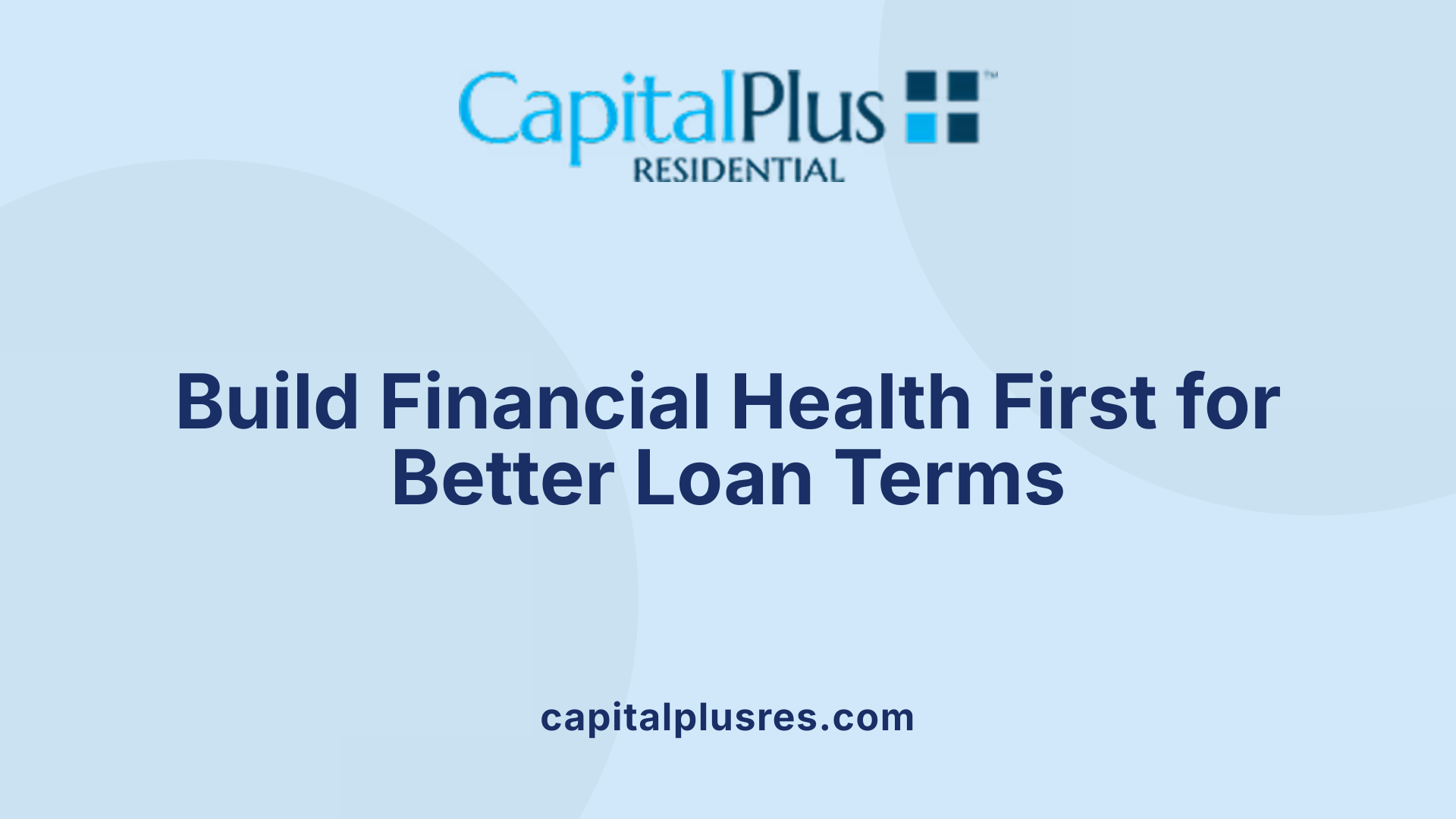Understanding the Impact of Credit Card Debt on Mortgage Approval
Securing a mortgage is a pivotal step towards homeownership, but your credit profile and debt management play a crucial role in the approval process. Managing credit card debt effectively before applying can significantly influence your eligibility, interest rates, and the terms of your home loan. This article explores how credit card balances, credit scores, and debt-to-income ratios affect mortgage applications, along with strategies to optimize your financial profile for a smoother approval process.
How Credit Card Debt Affects Mortgage Eligibility and Approval
How does credit card debt affect mortgage eligibility and approval?
Credit card debt plays a significant role in determining your suitability for a mortgage. It can negatively influence your chances of loan approval primarily through two main factors: your debt-to-income (DTI) ratio and your credit score.
Your DTI ratio is the percentage of your gross monthly income that goes toward debt payments. Including credit card payments, a high DTI can signal to lenders that you may have difficulty managing additional debt, which could lead to denial or less favorable loan terms. Most lenders prefer a DTI below 36%, with some allowing up to 45% in certain circumstances.
Credit card balances also impact your credit score via your credit utilization — the ratio of your current credit card balances to your total available credit. Keeping this utilization under 30%, and ideally below 25%, is important for maintaining a good credit score. High balances or maxed-out cards can lower your score, making you appear riskier to lenders.
Reducing or paying off credit card debt before applying for a mortgage can improve your financial profile. It boosts your credit score, lowers your DTI, and shows responsible credit management—factors that can help you secure a mortgage with better interest rates and more favorable terms.
However, holding some manageable credit card debt isn’t necessarily a barrier to approval. As long as your total DTI remains within acceptable limits and your credit score is sufficiently high, you will still qualify for most loans. Conversely, accumulating new debt or making large payments close to your application date can temporarily lower your credit score or increase your DTI, which may negatively influence your approval chances.
In sum, effective management of credit card debt isn’t just good for your credit score; it’s vital for aligning your financial profile with lenders’ requirements and securing the best mortgage terms.
The Role of Credit Scores, Balances, and DTI in Mortgage Applications
How high balances affect credit utilization and scores
High credit card balances can significantly impact your credit profile because they increase your credit utilization ratio—the amount of credit used compared to your total available credit. Ideally, the utilization ratio should stay below 30%, and maintaining balances below 25% can help preserve or improve your credit score. When balances are maxed out or high relative to credit limits, this can lower your score because lenders view it as a sign of financial stress or overspending. A lower credit utilization ratio not only boosts your credit score but also shows lenders that you manage credit responsibly.
The influence of credit scores on mortgage interest rates
Your credit score is a major factor in determining the interest rate offered by mortgage lenders. Generally, a score above 740 can secure the best terms with the lowest rates. Most mortgage loans require a minimum credit score of around 620, with some FHA loans accepting as low as 580. A higher credit score indicates less risk, enabling you to qualify for more favorable interest rates. Conversely, a lower score can mean higher monthly payments and a greater total cost over the life of the loan.
The significance of debt-to-income ratios and acceptable limits
The debt-to-income ratio (DTI) compares your monthly debt payments, including credit cards, loans, and other debts, to your gross monthly income. Lenders often look for a DTI of 36% or lower, with most preferred ratios below 43%. Some lenders may accept up to 45% in certain circumstances. Keeping your DTI within these limits demonstrates to lenders that you are financially responsible and capable of managing additional debt without strain.
| Aspect | Recommended Limits | Impact | Additional Details |
|---|---|---|---|
| Credit utilization ratio | Below 30% | Higher ratios can lower credit scores | Maintain balances under 25-30% of available credit |
| Credit score | Above 620, ideally 740+ | Higher scores secure better interest rates | Scores below 580 may limit loan options |
| Debt-to-income ratio | Below 36%, acceptable up to 43-45% | Lower DTI increases approval chances | Lower ratios indicate better financial health |
How do credit card balances, credit scores, and debt-to-income ratios affect mortgage applications?
Credit card balances and credit scores significantly impact mortgage applications because high credit card balances increase your debt-to-income ratio (DTI), making you appear riskier to lenders. A low credit score further elevates perceived risk, potentially leading to rejection or less favorable loan terms. Lenders evaluate DTI—specifically the back-end ratio, which includes all debt payments—to determine your ability to afford mortgage payments; ideally, this ratio should be at or below 36%. A higher DTI reduces your chances of approval and may result in higher interest rates, while lowering your debt or increasing income can improve your qualification prospects. Overall, maintaining low credit card balances, a strong credit score, and a manageable DTI are crucial for a successful mortgage application.
The Importance of Financial Health and Credit Management Before Applying for a Mortgage

Why is financial health and credit management important before applying for a home loan?
Establishing good financial health and managing credit carefully are fundamental steps when preparing to buy a home. Mortgage lenders assess your creditworthiness by reviewing your credit report and calculating important ratios such as your debt-to-income ratio (DTI) and credit utilization rate.
A strong credit profile can significantly influence the interest rate offered by lenders. Higher scores usually mean lower interest rates, reducing monthly payments and overall costs. Conversely, a high level of credit card debt can lead to a higher DTI and a lower credit score, which could jeopardize your chances of approval or require a larger down payment.
Building a good credit history involves responsible borrowing and repayment habits. For example, maintaining low balances on credit cards—ideally under 30% of your available credit—and paying bills on time are essential practices. Such responsible management signals to lenders that you are a reliable borrower.
Monitoring your credit report regularly is also vital. It helps you identify errors or fraudulent activity early. Knowing your credit scores from agencies like Experian or TransUnion allows you to understand where you stand and what areas need improvement.
Avoiding new debts during the mortgage process is equally important. Opening new credit lines close to your application can temporarily lower your credit score and increase your DTI, making it harder to qualify for favorable loan terms.
Overall, a solid financial foundation—marked by good credit habits, regular monitoring, and prudent debt levels—enhances your chances of securing a mortgage with better interest rates, favorable terms, and less stress during the approval process.
Strategies for Managing and Paying Off Credit Card Debt

What strategies can help manage and pay off credit card debt before applying for a mortgage?
Successfully reducing credit card debt before applying for a mortgage can significantly improve your chances of approval and help secure better interest rates. Here are some effective strategies to consider.
Creating a repayment plan is the first step. Develop a detailed budget that accounts for your monthly income and expenses, highlighting how much you can allocate toward debt repayment. Setting clear goals, such as paying off specific balances within certain timeframes, keeps you motivated and organized.
Prioritizing high-interest debts is crucial. Use the avalanche method by paying more towards the credit cards with the highest interest rates first. This approach minimizes the amount paid in interest over time and accelerates your debt reduction.
Utilizing balance transfers and debt consolidation can be highly beneficial. Transferring balances to 0% APR balance transfer credit cards allows you to pay down principal without accruing additional interest during the promotional period. Debt consolidation loans can combine multiple credit card debts into a single, lower-interest personal loan, simplifying your payments and potentially lowering your overall interest costs.
Maintaining low credit utilization is essential. Aim to keep your balances below 30% of your available credit—ideally under 20%—to boost your credit score and improve your debt-to-income ratio.
Avoiding new debt during this period is equally important. Opening new credit lines or making additional purchases can increase your debt-to-income ratio and negatively impact your credit score.
Consistently making on-time payments strengthens your credit profile. Timely payments demonstrate responsible credit management to lenders and can lead to improved credit scores over time.
Before proceeding with debt consolidation or refinancing, consult with your mortgage lender to ensure these strategies align with your home loan goals. While paying down debts can foster better loan terms, some approaches may temporarily affect your credit profile.
Finally, save diligently for your down payment and closing costs. Clearing your debt frees up cash, but ensure that your credit improvements don't come at the expense of available funds for your home purchase.
Implementing these strategies at least six months prior to your mortgage application can enhance your financial profile, increasing the likelihood of approval and favorable terms.
How Reducing Credit Card Debt Improves Mortgage Approval Chances
How can reducing credit card debt improve my chances of getting approved for a mortgage?
Reducing credit card debt can greatly enhance your likelihood of securing a mortgage by positively impacting two critical financial measures: your debt-to-income ratio (DTI) and your credit score.
Lenders assess your DTI to determine how much of your income is allocated toward debt repayment. Ideally, your DTI should stay below 36%, with some lenders allowing up to 45% in certain cases. High credit card balances increase your DTI, signaling to lenders that you might have difficulty managing additional debt. Paying down these balances lowers your DTI, making you look more financially responsible and capable of handling mortgage payments.
In addition, decreasing credit card balances reduces your credit utilization ratio — the percentage of available credit you are using. A lower utilization ratio (preferably below 30%) positively influences your credit score. A higher credit score (above 740 generally offers the best mortgage rates, and most loans require minimum scores around 620) can greatly improve your chances of approval and enable you to qualify for better loan terms, including lower interest rates.
Furthermore, paying off credit card debt demonstrates good financial management. It indicates to lenders that you are a responsible borrower, which can lead to increased confidence in your ability to meet mortgage obligations.
Another benefit of paying down credit card balances is the potential to qualify for larger loan amounts. As your debt decreases, your debt ratio shrinks, allowing lenders to offer higher mortgage limits that align with your improved financial profile.
In conclusion, actively reducing credit card debt before applying for a mortgage not only lowers your DTI and boosts your credit score but also increases your chances for favorable loan conditions. It shows lenders that you are managing your debts well and prepared to handle mortgage payments, making you a more attractive borrowing candidate.
Strategies to Reduce Credit Card Debt
- Avalanche Method: Pay off the highest-interest credit cards first.
- Snowball Method: Focus on paying off the lowest-balance credit cards first.
- Balance Transfers: Use 0% APR balance transfer offers to lower interest costs.
- Debt Consolidation: Combine multiple debts into a single, lower-interest personal loan.
Maintaining good credit habits, such as paying balances in full and on time, is crucial for maintaining a strong credit profile. It's advisable to work on reducing your credit card debt at least six months before applying for a mortgage to allow your credit report to reflect these improvements.
By managing your debts proactively, you enhance your financial profile and increase your chances of mortgage approval with better terms and rates. This strategy ultimately supports your goal of homeownership by ensuring you present yourself as a trustworthy and capable borrower to lenders.
Understanding How Debt and Credit Utilization Influence Lending Decisions

Impact of high debt levels on credit scores
High credit card debt affects your overall credit score, primarily through its influence on your credit utilization ratio. When your balances are close to the maximum limit on your cards, your utilization ratio rises, which can lower your credit score. For example, carrying a high balance relative to your available credit signals to lenders that you may be overextended financially. This perception can result in a lower credit score, making mortgage approval more difficult or leading to higher interest rates.
Moreover, high debt levels can negatively impact your debt-to-income (DTI) ratio—a crucial measure lenders evaluate. If monthly debt payments, including credit card minimums, occupy a large percentage of your gross income, your DTI increases. Most lenders prefer a DTI below 43%, and higher ratios may limit your loan options or lead to outright denial.
Credit utilization ratio and its effect
The credit utilization ratio is a percentage calculation of how much credit you are using compared to your credit limits. This ratio is a significant component in credit scoring models like FICO and VantageScore. A higher utilization rate indicates higher risk, prompting lenders to view you as less creditworthy. To maintain a good credit score, it is recommended to keep your credit utilization below 30%, with under 25% being ideal.
For instance, if you have a total credit limit of $10,000 across all cards and your balances sum to $2,500, your utilization rate is 25%. Keeping balances low within this threshold helps preserve or enhance your credit score.
Managing debt to optimize mortgage prospects
Strategic debt management is essential for a successful mortgage application. Reducing credit card debts can significantly improve your credit score and lower your DTI ratio, thus enhancing your approval chances.
Methods to manage and reduce debt include:
- The Avalanche Method: Prioritizing paying off high-interest credit cards first.
- The Snowball Method: Paying off lower-balance cards to gain quick wins.
- Balance Transfers: Moving debt to 0% APR cards to avoid interest and accelerate payoff.
- Debt Consolidation: Using personal loans to combine multiple debts into a single, manageable payment.
Once debts are paid off or reduced, keeping credit cards open helps maintain your credit utilization ratio and credit history, both important for favorable loan terms. It’s recommended to aim for paying down debts at least six months prior to applying for a mortgage, allowing your credit profile time to stabilize.
Maintaining responsible credit habits, such as paying bills on time and avoiding new credit lines before finalizing your mortgage, also play a critical role. These practices demonstrate financial stability and responsibility, qualities that lenders favor.
| Aspect | Recommended Level | Explanation | Example |
|---|---|---|---|
| Credit Utilization | Less than 30% | Keeps credit scores high and lowers risk | $10,000 limit, balances under $3,000 |
| Debt-to-Income Ratio | Below 43% | Indicates manageable debt load | $5,000 monthly income, $2,000 debt payments |
| Credit Score | Above 740 for best rates | Establishes reliability | Good credit management, no late payments |
| Banked Debts | Pay before applying | Ensures better approval chances | Pay off credit cards, personal loans |
How credit habits impact mortgage approval
Building a strong credit profile involves consistent, responsible debt repayment. Late payments, maxed-out cards, or recent credit applications can reduce your score and raise your DTI, both of which are unfavorable in lenders’ eyes. Conversely, maintaining low balances, paying debts on time, and avoiding new credit inquiries strengthen your profile.
In addition, keeping credit card balances below 20%–30% of your available credit, avoiding closing accounts prematurely, and monitoring your credit report for errors all contribute to a more favorable mortgage application outcome.
Effects of new credit models on mortgage decisions
Upcoming updates to credit scoring models—FICO 10T and VantageScore 4.0—continue to emphasize credit behavior over time. These models look at 'trended credit data,' meaning your recent credit management efforts matter more than just a snapshot of current utilization. Responsible use of credit, like paying in full and managing balances over the last two years, will now influence scores more significantly.
In practice, this means that making consistent, responsible payments in the months leading up to your application can positively affect your score under the new systems. Conversely, taking on new debt right before applying might momentarily lower your score and hurt your chance for favorable terms.
Final considerations
Managing debt and credit utilization is not a one-time effort but an ongoing process. Regularly monitoring your credit reports, maintaining low balances, and paying bills on time are investments in your future homebuying success. Strategic debt reduction efforts and responsible credit management can significantly increase your odds of approval and access to the best mortgage rates.
Elevating your financial profile by controlling debt and credit use ultimately helps you not only qualify for a mortgage but also secure a loan with better terms—and that can save you tens of thousands of dollars over the life of your loan.
Evaluating and Improving Your Credit Profile for a Mortgage
How can I evaluate and improve my credit score in preparation for a mortgage application?
Preparing for a mortgage involves understanding and optimizing your credit profile. Begin by reviewing your credit reports from all three major bureaus—Equifax, Experian, and TransUnion. This step helps you identify any errors or discrepancies that could unfairly lower your score. Common mistakes include outdated information, incorrect account statuses, or duplicate entries.
Once you've identified errors, dispute them directly with the credit bureaus to have them corrected or removed. Keeping your credit report accurate enhances your overall creditworthiness.
Focusing on paying all your bills on time is critical, as payment history accounts for a significant portion of your credit score. Late or missed payments can available as a red flag to lenders, so set reminders or automatic payments to stay current.
Reducing your credit utilization ratio—the percentage of available credit you're using—is another essential step. Ideally, keep this ratio below 30% on each credit card to maintain a healthy score. Paying down existing debts, especially high-interest credit card balances, can significantly boost your credit profile.
Avoid opening new credit accounts or making substantial credit inquiries just before applying for a mortgage. Multiple inquiries can lower your score temporarily and signal higher risk to lenders.
Maintaining a long, stable credit history helps demonstrate reliability. If you've recently opened new credit, do not close those accounts immediately—keeping them active can serve as positive evidence of credit management.
Lastly, consider working with a credit counselor for personalized advice. A professional can help you develop a tailored strategy to reduce debt, improve your credit habits, and maximize your credit score before submitting your mortgage application.
Proactively managing your credit profile over several months is advisable, as significant improvements can take time to reflect fully in your credit scores. This preparation increases your chances of mortgage approval and helps you qualify for better interest rates.
The Indirect Role of Credit Card Debt in Mortgage Interest Rates
How does credit score influence the interest rate on a mortgage?
Your credit score plays a significant role in determining the mortgage interest rate you can qualify for. Generally, a strong credit score above 740 can secure the most favorable rates, whereas scores below 620 may result in higher interest payments. Because credit card debt impacts your credit score—particularly through your credit utilization ratio and timely payment history—carrying high balances can lower your score.
Lenders assess your creditworthiness based on these factors, and a lower score often translates into higher interest rates. This increase can significantly raise your monthly payments and the total cost of your home loan over its term. Conversely, reducing credit card debt and maintaining responsible credit habits can improve your credit score, opening the door to lower mortgage rates.
What are the benefits of paying down debt to improve mortgage interest rates?
Reducing credit card debt offers multiple advantages when applying for a mortgage. Firstly, paying off or significantly reducing balances increases your credit score by lowering your credit utilization—ideally below 30% on each card. A higher score can help you qualify for preferential interest rates, which save thousands over the life of the loan.
Secondly, lowering your debt-to-income ratio (DTI) enhances your likelihood of approval. Most lenders prefer a DTI of 43% or less; paying down debt reduces the ratio, demonstrating your ability to manage future mortgage payments responsibly.
Finally, managing debt responsibly not only improves the chance of loan approval but also positions you for more favorable loan terms, reducing the overall financial burden.
How might home equity be used to manage or reduce credit card debt?
One strategic approach some homebuyers use is leveraging their home equity through a cash-out refinance. This involves refinancing your mortgage for more than you currently owe and taking the difference as cash. The benefit is that mortgage interest rates are typically much lower—around 6-7%—compared to credit card interest rates, which often exceed 20%.
By consolidating credit card debt into a lower-interest mortgage, you can reduce your overall interest payments and streamline debt management. This move can also help improve your credit score by paying down high-interest balances and reducing overall debt levels.
However, it's important to consider the risks. Cashing out equity increases your mortgage balance and extends your repayment period. It also affects your debt-to-income ratio, which could impact your ability to qualify for some loans or lead to larger monthly payments.
Hence, while using home equity can be an effective way to manage high-interest credit card debt, it requires careful planning and responsible use to avoid potential pitfalls such as foreclosure if repayments become unmanageable.
| Aspect | Impact | Additional Details |
|---|---|---|
| Credit Score | Influences mortgage rates | Higher scores qualify for lower rates, better loan options |
| Debt Reduction | Improves creditworthiness | Lowers credit utilization and DTI, enhances approval chances |
| Home Equity Use | Potential debt management tool | Can lower interest costs but extends mortgage duration |
Understanding these interconnected factors can help prospective homebuyers make informed decisions to improve their borrowing prospects. Managing credit card debt thoughtfully not only supports better mortgage terms but also contributes to overall financial health.
Best Practices for Balancing and Managing Credit Card Debt

What are the best practices for balancing and managing credit card debt to strengthen my mortgage application prospects?
Managing credit card debt effectively is crucial for improving your chances of getting approved for a mortgage and securing better interest rates. The first step is to prioritize paying more than the minimum monthly payments on your credit cards. Doing so helps reduce the outstanding balances faster, lowers your credit utilization, and demonstrates responsible credit management to lenders.
Creating a detailed budget allows you to track monthly expenses, identify areas where you can cut costs, and allocate greater funds toward paying down debts. Avoiding new debt during this period is essential, as taking on additional credit can increase your debt-to-income ratio and negatively impact your credit score.
When it comes to paying off existing credit card debt, two popular strategies can be highly effective:
| Method | Approach | Benefits |
|---|---|---|
| Avalanche Method | Focus on paying off high-interest credit cards first | Saves money on interest and accelerates debt payoff |
| Snowball Method | Pay off smaller balances first to build momentum | Boosts motivation and provides quick wins |
In addition to these methods, consider options like balance transfers to 0% APR credit cards, which give you time to pay down debt without accruing interest. Debt consolidation through personal loans or seeking advice from reputable credit counseling agencies can also streamline your payments.
Throughout this process, maintaining a good credit utilization ratio—ideally below 30%—is vital. Regularly monitoring your credit report and score helps you stay aware of your progress and identify areas for improvement.
Avoiding late payments is critical, as they can significantly damage your credit score and credibility in the eyes of lenders. If possible, set up automatic payments or reminders to ensure timely payments.
Lastly, communicate proactively with your creditors if you experience difficulties in making payments. Many lenders are willing to work out payment plans or hardship programs that can help you manage your debt more effectively.
By applying these best practices—paying more than the minimum, avoiding new debt, using effective payoff strategies, and maintaining responsible credit habits—you can significantly improve your credit profile. This not only increases your chances of mortgage approval but also helps you secure the most favorable loan terms available.
Preparing for Homeownership Through Smart Debt Management
Effectively managing and reducing credit card debt before applying for a mortgage is essential for improving your approval odds and securing favorable loan terms. By understanding the impact of credit utilization, maintaining healthy credit scores, and keeping your debt-to-income ratio within acceptable limits, you demonstrate to lenders that you are a responsible borrower. Employing strategic debt repayment methods, such as paying off high-interest balances first or consolidating debt, further enhances your financial profile. Balancing credit card debt responsibly not only increases your chances of mortgage approval but also helps you enjoy better interest rates, lower monthly payments, and more financial stability in your homeownership journey. Start preparing early, monitor your credit regularly, and adopt best practices to ensure you are in the strongest position possible when applying for a mortgage.
References
- Pay Off Credit Card Debt Before Applying For A Mortgage
- Can I Get a Mortgage if I Have Credit Card Debt?
- Paying Off Credit Card Debt Before You Apply for a Home ...
- Decrease Your Debts and DTI Before Applying for a ...
- Should you pay down debt before applying for a mortgage?
- Credit Card Use Before Buying a House
- How Does Credit Card Debt Affect Getting a Mortgage?









